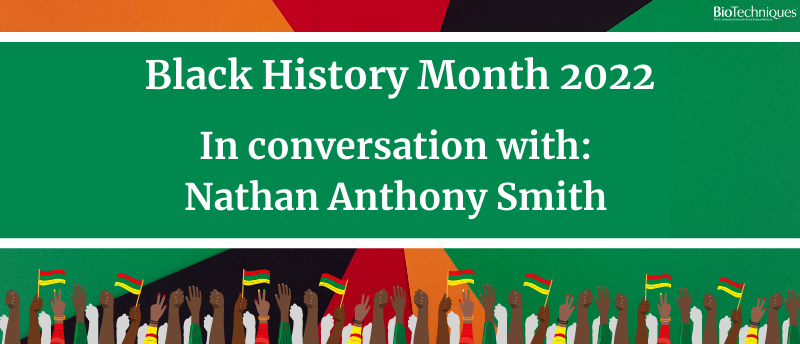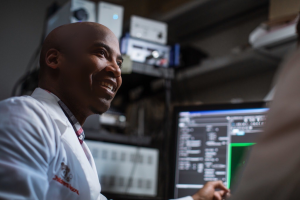In celebration of Black History Month: a conversation with Nathan Anthony Smith

 Nathan Anthony Smith (right) is a neuroscientist based in Washington DC (D.C, USA) and incoming Associate Dean of Equity and Inclusion at Rochester School of Medicine and Dentistry (NY, USA). Here, he speaks about his greatest achievements, experiences being a Black scientist and the key lessons he hopes to bring to his new role at Rochester.
Nathan Anthony Smith (right) is a neuroscientist based in Washington DC (D.C, USA) and incoming Associate Dean of Equity and Inclusion at Rochester School of Medicine and Dentistry (NY, USA). Here, he speaks about his greatest achievements, experiences being a Black scientist and the key lessons he hopes to bring to his new role at Rochester.
Please tell us about yourself and how you got to where you are today?
I am Dr. Nathan Anthony Smith. I am from the great state of Louisiana, and I am a Neuroscientist. I am currently the Director of Basic Neuroscience Research in the Center for Neuroscience Research at Children’s National Research Institute (D.C, USA) and an Assistant Professor of Paediatrics & Pharmacology and Physiology at George Washington School of Medicine and Health Sciences (D.C, USA). However, in the spring of this year, I will be moving to the University of Rochester School of Medicine and Dentistry (NY, USA) as the Associate Dean of Equity and Inclusion and an Associate Professor of Neuroscience. I am very excited to start this new chapter in my career because it will allow me to further grow my research program and advocate for the importance of DEI. My mother and grandmother played instrumental roles in helping me strive to achieve my goals. Their values and lessons on never giving up were key to my education and gave me the determination to keep going. Equally important, my mentors and my different support units also played a vital role in my development into a scientist. These combined factors are how I made it to where I am and how I continue to move forward in academia.
In your career, have you ever felt that you were at a disadvantage because of your race?
I have experienced microaggression, macroaggression, and racism throughout my STEM career. For example, I was walking to the lab and was mistaken for a janitor. Another time, I had a phone interview for a tech position, and it went well. However, when I showed up for the face-to-face meeting, the person told me that I was not the person they spoke to over the phone and that the job was filled. I can go on and on because I have countless stories about my experience. However, I am still here, and I am still moving forward and paving the way for others.
Are there any key resources or places that you found support when facing challenges?
When facing challenges, I turn to my support groups. My support group consists of friends from all over. It also consists of NIH-supported programs such as Mentoring Institute for Neuroscience Diversity Scholar (MINDS) and Broadening the Representation of Academic Investigators in NeuroScience (BRAINS). MINDS is a program that aims to promote the advancement of promising, underrepresented (minority) junior faculty members in neurosciences, and BRAINS is a program dedicated to advancing diversity and inclusion in neuroscience. They both explicitly address the inclusion, retention, and advancement of early-career neuroscientists from historically underrepresented and marginalized groups. I have significantly benefited from both programs, and they have increased my support system 10-fold by broadening my network. It is essential to have a solid support system because knowing that you are not alone is important.
What is your greatest achievement?
On June 24, 2013, I successfully defended my Ph.D. in Neuroscience, becoming the first African American to receive a Ph.D. in Neuroscience from the University of Rochester School of Medicine and Dentistry. I am proud of this moment because it serves as an example to those who look like me that anything is possible and to never give up on their dreams.
What advice would you give to young Black scientists to help them thrive in the scientific field?
My first piece of advice is to know your worth and never let anyone make you feel less than. My second critical piece of advice would be to make sure you self-advocate for yourself because no one else will. One must be able to advocate for the resources that will help one thrive in the scientific field.
Is there anything else you’d like to mention?
It is essential to keep in mind that there will be good and bad days but remember always to keep your head up and keep moving. Never stop pushing forward.